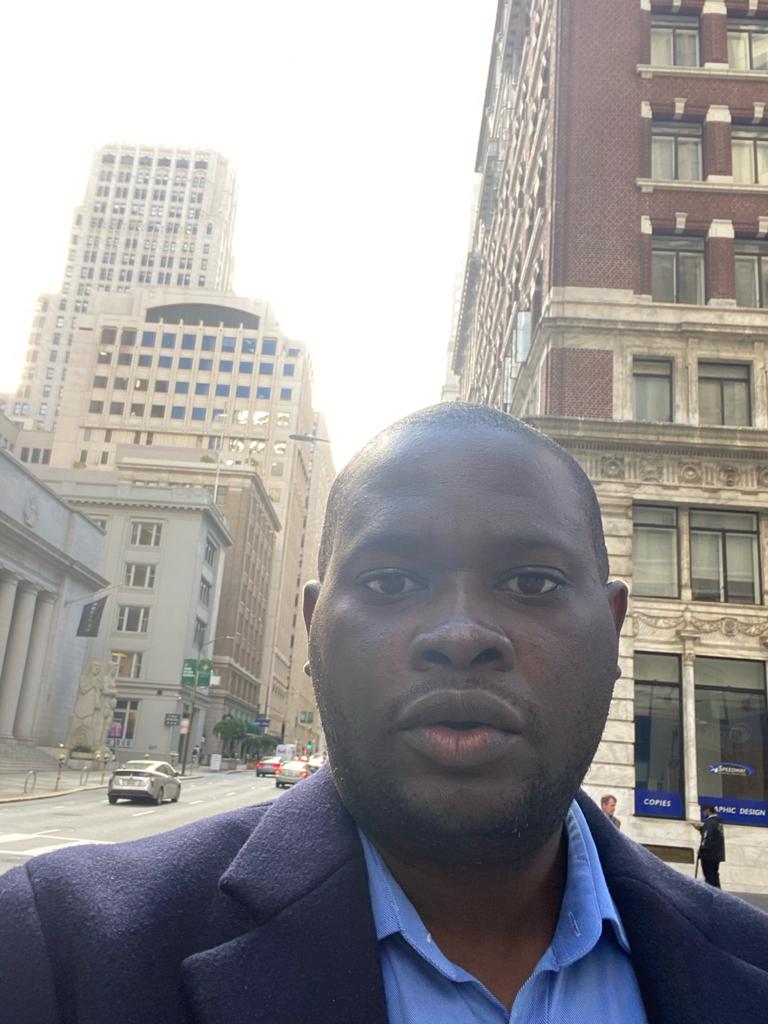Reimagining the venture capital industry
With no prior experience in the venture capital industry, Executive MBA alum Adetayo Teluwo set out on a courageous journey into venture capital, working with his partners to build a venture capital firm (and emerging fund) from ground zero. We caught up with Adetayo to find out more about this bold venture.
What made you choose WBS for your Executive MBA?
Interestingly, the Entrepreneurial Finance module in San Francisco was a major decisive factor for me. With relevant generalist competencies and operator experience in fintech and digital commerce, I was very open to a bridge into venture capital (VC).
Why venture capital?
Over the past three years, I’ve benefitted from highly insightful exposure to new ventures in angel investor, advisor and mentor capacity. Working closely with founders, I paid attention to the imbalance between investors (VC, corporate VC, accelerators, family offices, venture studios and angel investors) and founders (of digital start-ups). I felt inspired to play an active part in fixing this imbalance. To deliver win-win outcomes for both sides, it was important to understand the imbalance at scale.
I had previously tried to break into VC but with little luck. It felt like a cult. I then started to receive encouragement to start a VC fund rather than seek employment with an existing VC firm. And, with no prior working experience in the venture capital industry, I began my courageous journey into VC via FbX in Managing Partner capacity. I immediately saw an opportunity to turn that cult-like culture around. At FbX, one of our mantras is ‘Community over cult’.
How would you describe this imbalance?
VCs suffer from the blindsides of having the bird’s eye view. Founders suffer from the blindsides of having the worm’s eye view.
While you often hear VCs positioning to be operator-led, a lot of damage seems to have been done. Founders want to be fully understood. VCs seemed to have been failing at this, as evidenced by some of the investment choices in recent years. This is invariably a knowledge or depth problem. So, with more operators actively involved in VC, this gap is expected to begin thinning out.
What makes FbX different?
The FbX Council is a rich pool of seasoned professionals mapped to each startup to deliver high-quality fractional support. Council members own equity and are milestone-driven. We are yet to find a similar model to this across VC land.
FbX is a knowledge-led VC firm with a carefully assembled team of self-taught VCs who believe magic will be found at the other side of questioning convention. We are bold enough to reimagine VC as an industry with the unique advantage of the knowledge economy.
Sub-Saharan Africa needs a venture capital model that suits the realities and possibilities specific to the region. FbX is keen to validate our investment thesis by successfully executing a fine balance between building for impact and building for profitability.
We work with our founders from pre-seed through Seed to Series A, and we exit, at a win-win premium, for all stakeholders. It is a build-to-sell early model, nothing to be ashamed of. Tunnel Buying is a viable, proprietary pathway for these exit opportunities and we look forward to it becoming an industry reference for enabling early exits for limited partners (LPs).
Early exits, for founders and LPs, on a continent like Africa would accelerate re-injection and re-investment of capital with positive impact, ecosystem wide. FbX focuses on founders building era-resistant, market-shaping solutions, solving relevant and rewarding problems.
How is FbX tackling social and environmental sustainability?
With ‘de-risking’ being one of the FbX core values, we are committed to acting responsibly.
Our first fund, Jamma by FbX, a $10 million emerging fund, is fully committed to the UN sustainable development goals by funding and fully supporting founders building in cleantech, sustainability, mobility, agribusiness, healthcare and education.
We believe strongly that our startups would contribute to scaling job creation, income uplift and energy access over the next decade.
How has your Executive MBA supported you on your journey into VC?

Entrepreneurial Finance module
The WBS Executive MBA has equipped me with the skills not only to survive but lead and thrive, as I work with my amazing partners to build a VC firm (and emerging fund) from ground zero, influencing others in a positive, productive, and fulfilling way.
With no prior work experience in the VC industry, my courageous journey into VC has been inspired and influenced largely by five factors from my Warwick Business School journey:
- WBS Entrepreneurship specialism
- Mergers & Acquisitions module
- Entrepreneurship and New Venture Creation module
- Entrepreneurial Finance module
- And finally, my dissertation.
I hope my FbX story and journey will inspire other Africans, and those from other nations, to consider WBS for their business school education.




 X
X Facebook
Facebook LinkedIn
LinkedIn YouTube
YouTube Instagram
Instagram Tiktok
Tiktok